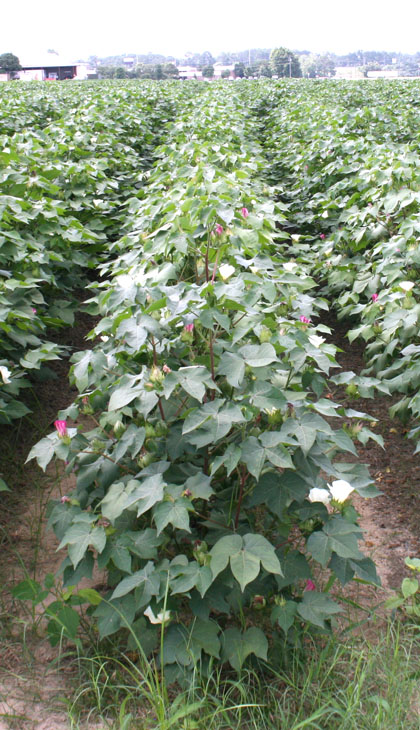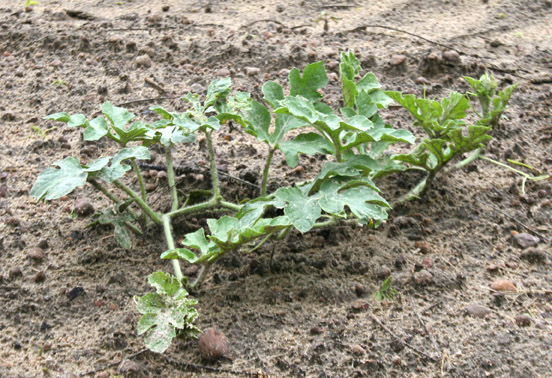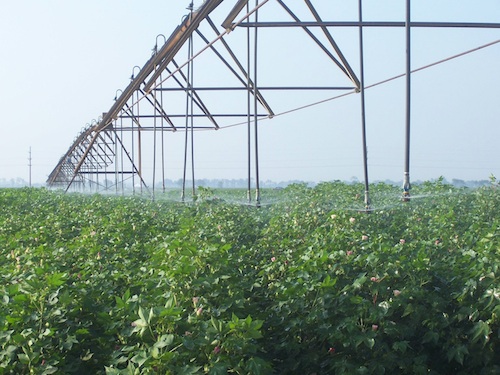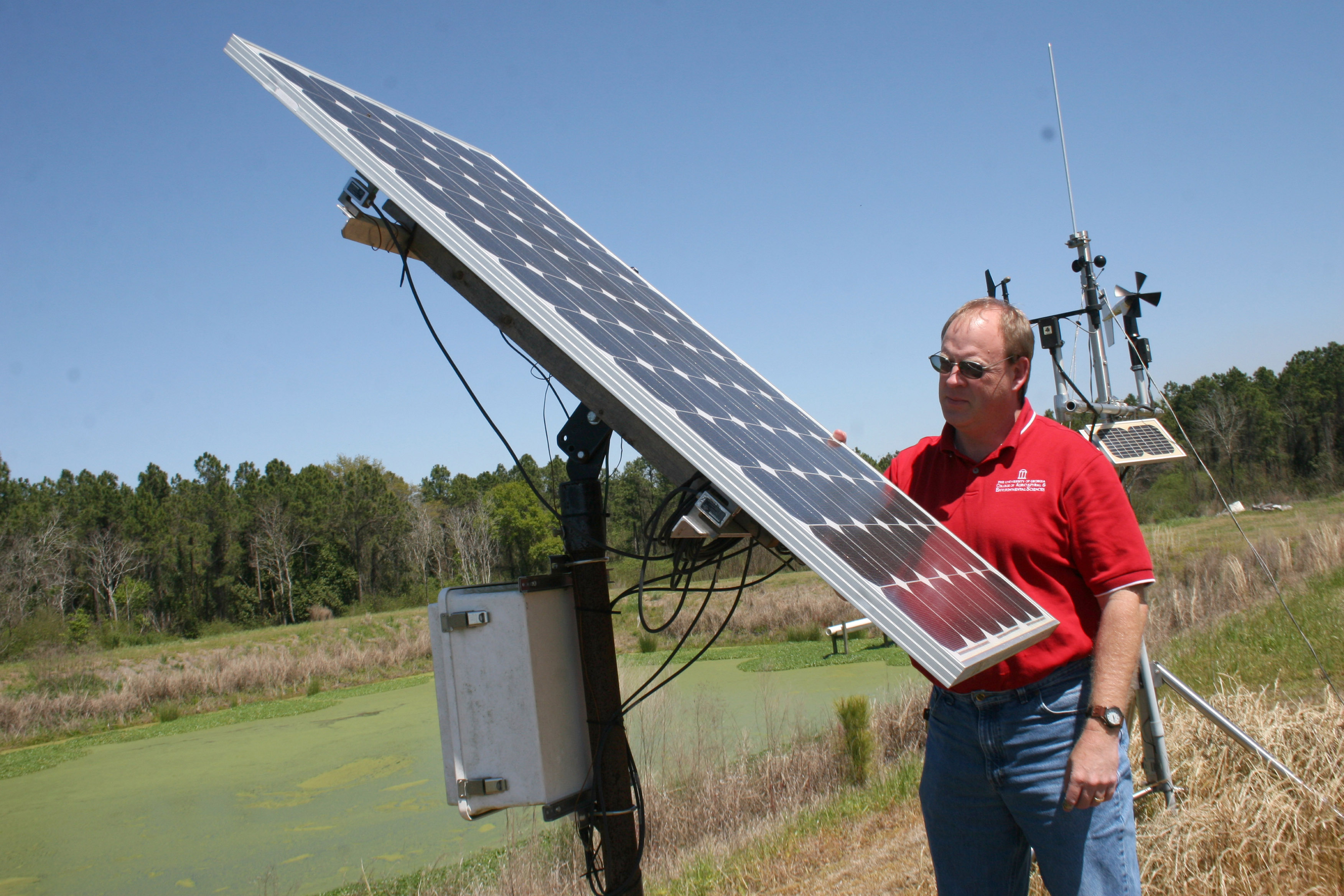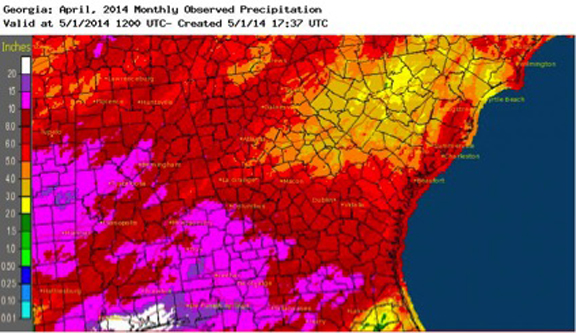 CAES News
CAES News
April Showers
April was significantly wetter than normal across most of the state, which recharged soil moisture but delayed planting of some summer crops.

